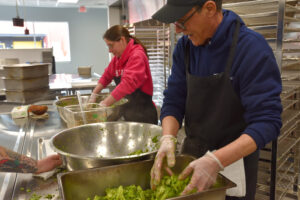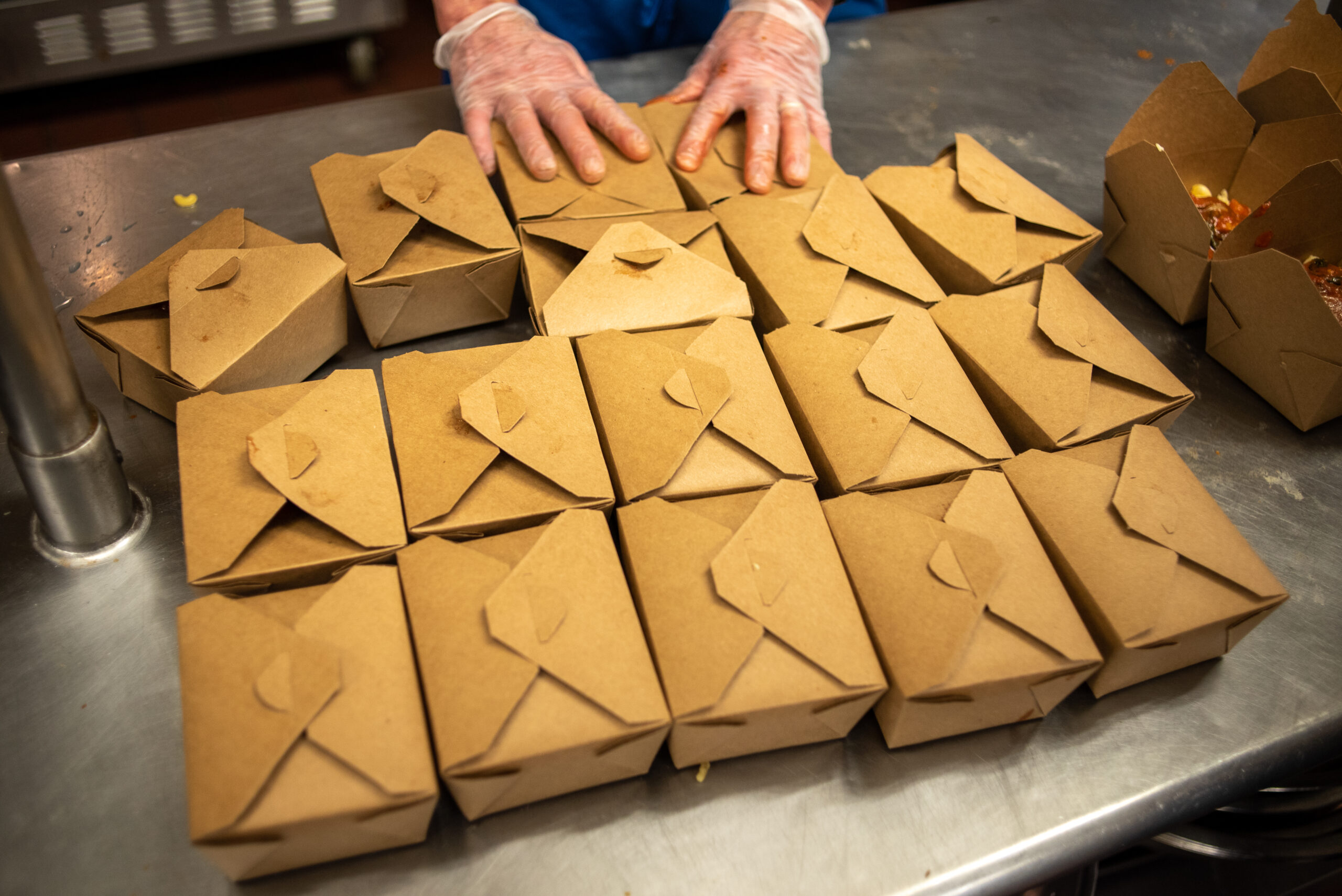During the school year, more than 20 million children in the U.S. rely on school lunches for daily meals. School breakfast and lunch programs are an important tool to address food insecurity among school age children in the U.S. However, when school is out of session, children can no longer access these daily meals, leading to increased hunger and food insecurity in the summer. This is known as “The Summer Food Gap.”
One-time benefit for families
SUN Bucks, also called Summer EBT, is a new federal program aimed at addressing summer hunger. SUN Bucks is a one-time $120 benefit for families with school aged children to supplement for groceries.
Most families will receive SUN Bucks automatically if they have school-aged children who already receive any other benefits like SNAP, TANF, or FDPIR. If your child attends a school that contains the National School Lunch or Breakfast Program, and your household meets the requirements for free and reduced meals, you will also automatically be enrolled. Those who aren’t automatically enrolled can apply if they meet the income levels or other requirements. You do NOT need to be a US citizen to apply for the benefit.
If you think you may be eligible, but didn’t automatically receive the $120 benefit, you can find the SUN Bucks application here. All applications must be received by August 15th and can be submitted by mail or email.
For more information about SNAP benefits (Supplemental Nutrition Assistance Program) and the SUN Bucks program, visit www.maine.gov/dhhs/ofi.
Maine has high rates of food insecurity
According to Map the Meal Gap, Maine has a food insecurity rate of 13%. The Campaign for Ending Hunger reports that out of the 1 in 8 Mainers that face hunger, 1 in 5 of these Mainers are children. In the summer, high meal prices, reduced emergency SNAP benefits, and lack of affordable, nutritious options place an increased strain on families.
The Food Security Hub is making progress
Preble Street’s Food Security Hub (FSH) is a sustainable, comprehensive, and collaborative approach dedicated to ending hunger in Maine. Through the FSH, Preble Street is implementing initiatives to increase food security and provide nutritious, culturally appropriate meals to families in our community.
With a grant from the USDA, the FSH has increased access to locally grown produce and decreased overall food waste. Using this grant funding, the FSH has secured state-of-the-art food processing equipment that will help Preble Street process more local produce and use it in meal production. This equipment will also increase the total number of meals the FSH produces for people and families experiencing hunger and food insecurity.
With the addition of this new equipment, the FSH developed a system to better track its use of local produce to prevent and monitor food waste. Lauren Mitchell, an intern from the University of Southern Maine, created this system, which now tracks produce received from community farm partners, waste from spoilage and preparation scraps, as well as preservation efforts. From October 2023 to May 2024, Lauren has tracked over 90,000 pounds of local produce from community farm partners. Using the new food processing equipment, the FSH is now better able to preserve local produce for the long-term. Lauren’s tracking shows this, as over 9,000 pounds of produce has been preserved for later use since monitoring began.
Honoring its commitment to provide nutritious and culturally appropriate meals, the FSH is launching new informational cards to inform caseworkers and volunteers about different cultural food practices. The cards provide details about foods that are kosher, halal, and cultural staples used by people and families the FSH serves. These cards will educate caseworkers and volunteers and help ensure they create culturally appropriate emergency grocery boxes where and when needed.
Read more...

Five Years Later: How Preble Street’s Response to COVID-19 Shaped Its Future
During our 50 years in operation, Preble Street has had to adapt to changing needs and a shifting landscape many times. Never was this truer than in the days, months, and years that followed March 16, 2020. Five years ago this month, while the world was urged to stay home, a question loomed over staff

Food Is a Human Right: Protecting Access to Nutrition in Maine
In honor of National Nutrition Month, we take a look at the emergency food system in Maine. Food pantries and anti-hunger non-profits like Preble Street play an important role in ensuring people experiencing food insecurity have consistent access to healthy and nutritious food. Since opening in 1975, Preble Street has worked to ensure that everyone

Increasing Maine’s emergency readiness
Something will happen again, whether it be a natural disaster or global pandemic. When it does happen, Preble Street will be there to work with partners, support our community, and ensure people are getting fed. Mark Swann, Preble Street Executive Director During the pandemic, Preble Street, like many other organizations, had to suspend its soup

